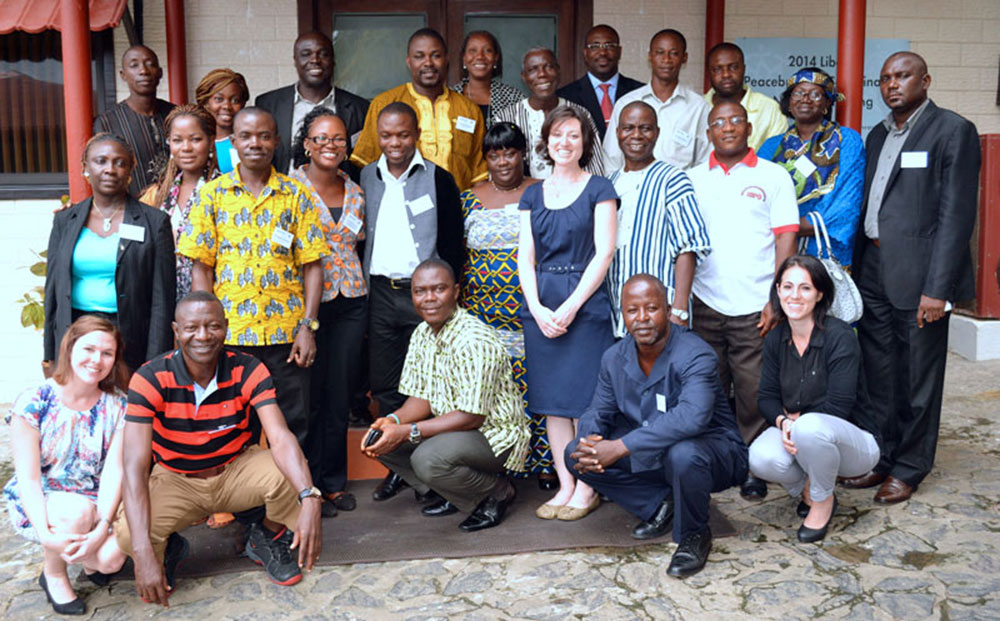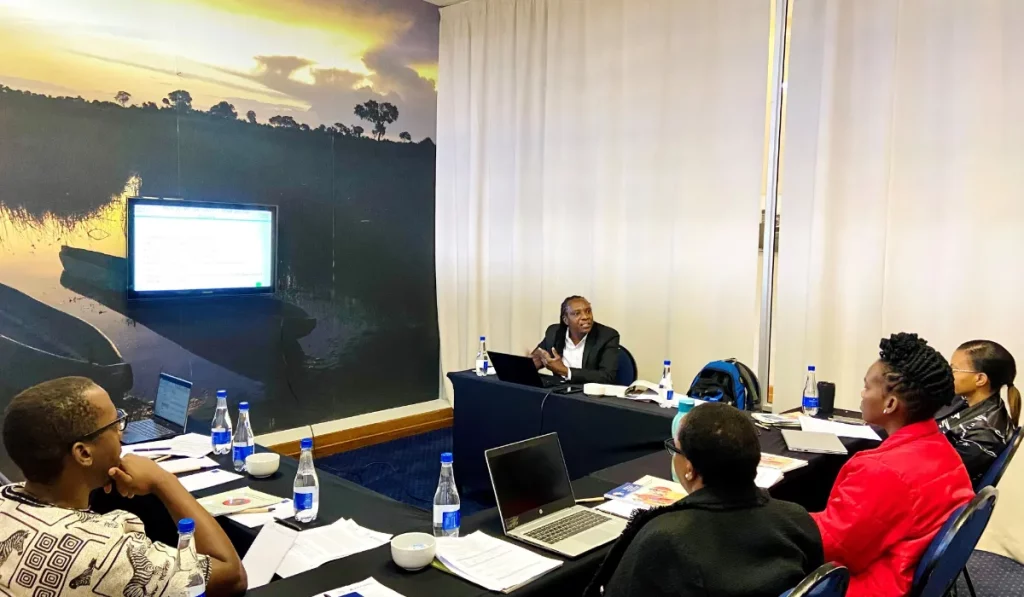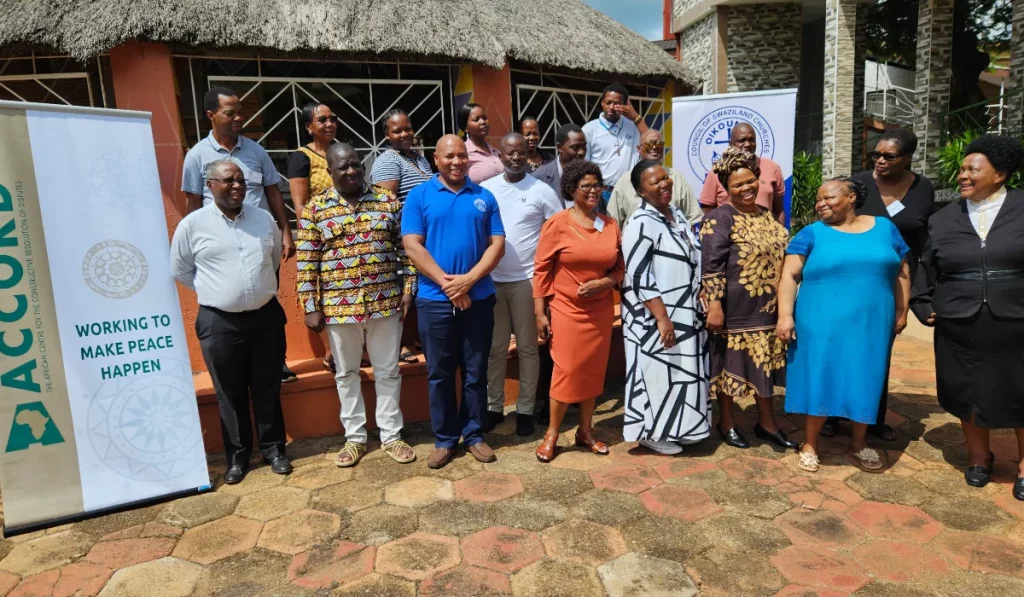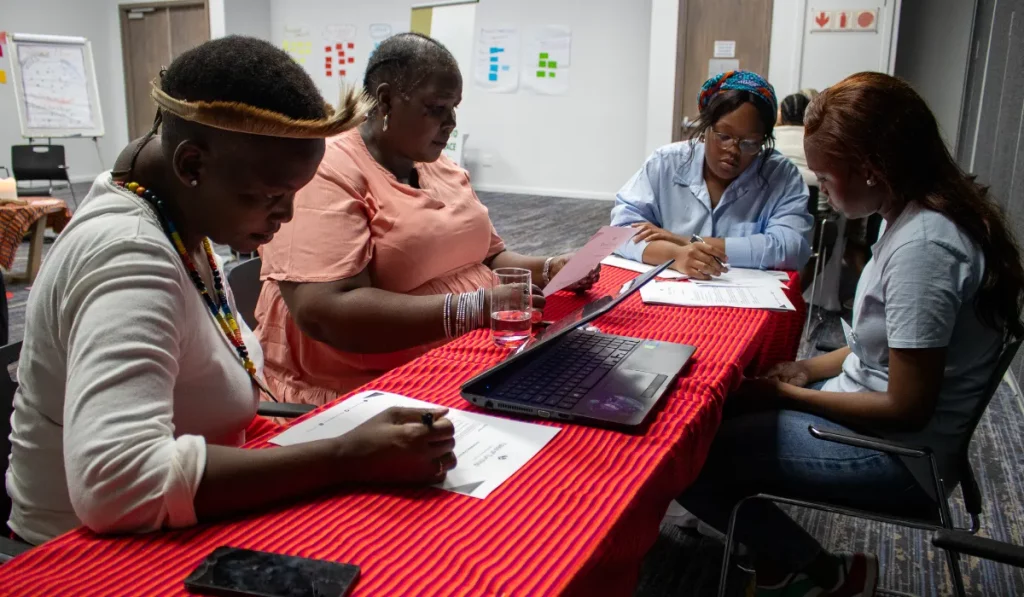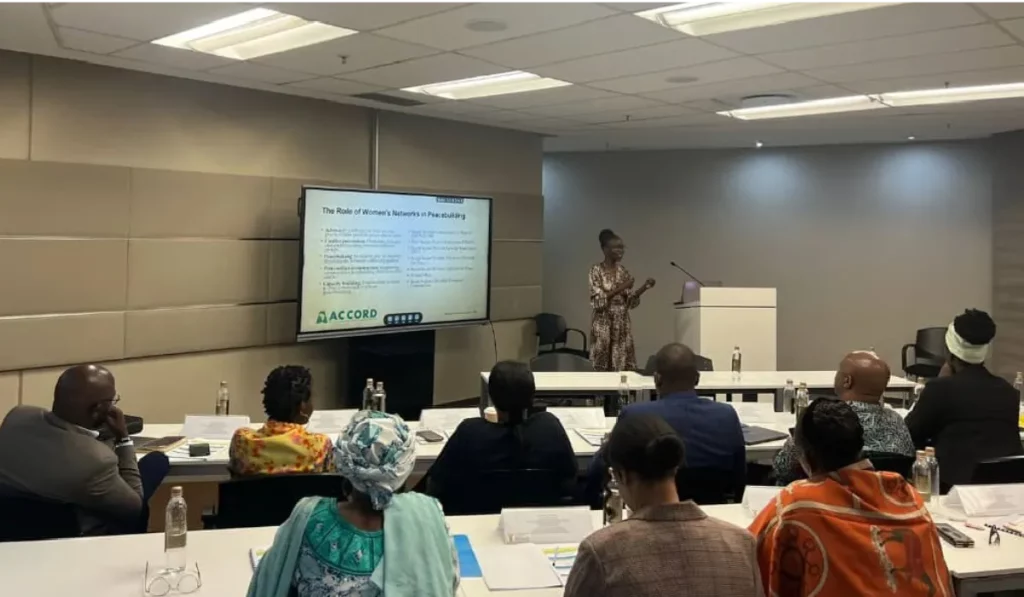ACCORD is firmly involved in the peacebuilding and reconciliation process in Liberia through supporting local actors and building the capacity of implementing partners of the Reconciliation Roadmap. The most recent training, done in collaboration by the Peacebuilding Unit and Training Unit, successfully contributed to this long-term process by catalysing national peacebuilding actors with peacebuilding skills and project management tools.
Ten years after the war ended in Liberia, the country has come a long way in its reconciliation process; however, it still has a long way yet to go. For this reason, last week, from 23-27 June 2014, the Peacebuilding and Training Units, along with Ms Oury Traore as an external trainer, facilitated a five day training on peacebuilding skills in relation to the implementation of reconciliation projects in Liberia. The training focused specifically on conflict and context analysis, and project management, with a concentration on monitoring and evaluation. These skills were identified as important in the capacity building of local actors through a baseline study and ongoing engagement with the Peacebuilding Office of Liberia. The training was therefore context-specific to Liberia and tailor-made for the specific participants of the training. The participants, 19 in total, were exceptional. It was emphasised by Traore, that all of us present were teachers as well as listeners. The participants were very active to share their experiences and they listened intently to learn how to apply the skills taught to their organisations’ projects. They expressed great appreciation in the training modules and the experiences of all presenters. A unique and significantly helpful aspect of this training was the diversity of local actors – each from different parts of the country, working on various peacebuilding projects. This diversity applied both to the participants of the training and the resource persons called in to give updates on specific elements of the Liberian context. This allowed for a highly engaging environment conducive to sharing experiences and mutual learning by all.
ACCORD has been committed to supporting the peacebuilding process and helping build the capacity of key peacebuilding actors in Liberia since 2007 and this year, the country is a key focus of the Peacebuilding Unit. Having identified several gaps in the peacebuilding process where stronger support for implementation is needed, ACCORD is committed to assisting local actors to lead the process for reconciliation and sustained peace. This training was part of a larger African Peacebuilding Coordination Programme aimed to strengthen local capacities in planning and implementing peacebuilding tools; to enhance the policy engagement of local actors, catalysing their role for coordinated peacebuilding efforts and local ownership; to share knowledge and experience from across different sectors and areas; and to develop coherence and coordination in peacebuilding. Through this programme’s activities, and this training in particular, ACCORD expects to contribute to the personal and professional development of the participants so that they can lead the peacebuilding process through the influence of their organisations’ projects.
ACCORD is committed to continuing this work, in tailor-made ways for Liberian actors. As these recent participants return to their organisations, ACCORD has confidence that they will continue their valuable contributions to the various aspects of the peacebuilding process with a more holistic understanding of peacebuilding skills, project management, and monitoring and evaluation tools. They are well positioned to continue and to catalyse the peacebuilding process in Liberia.

